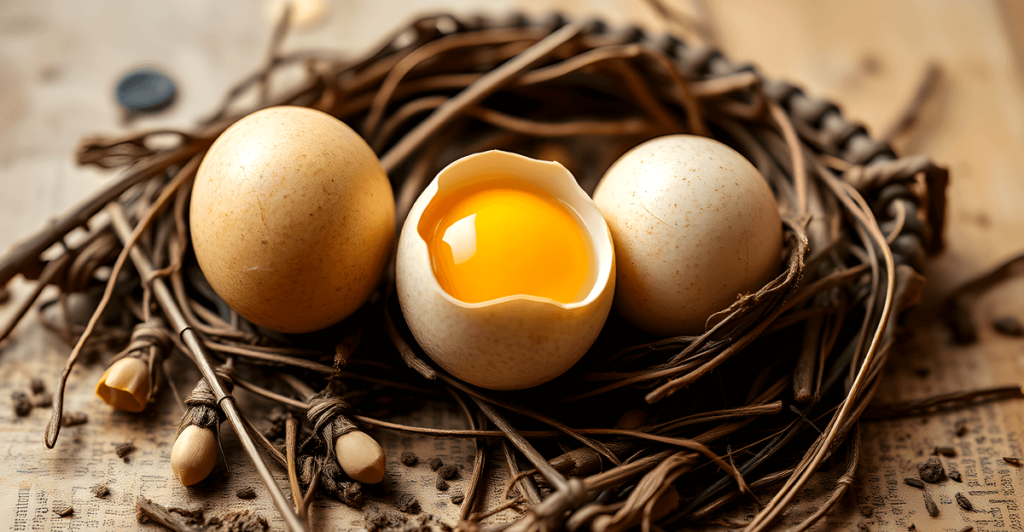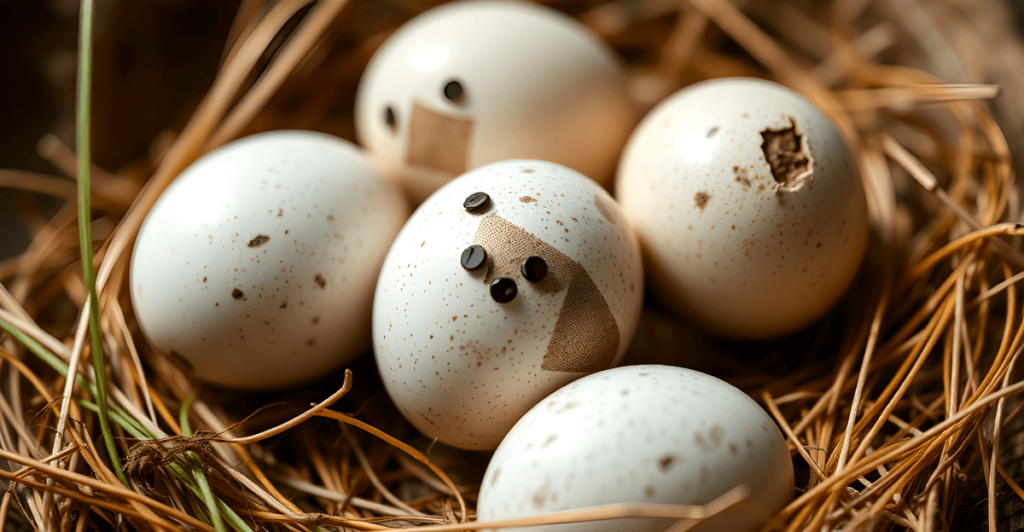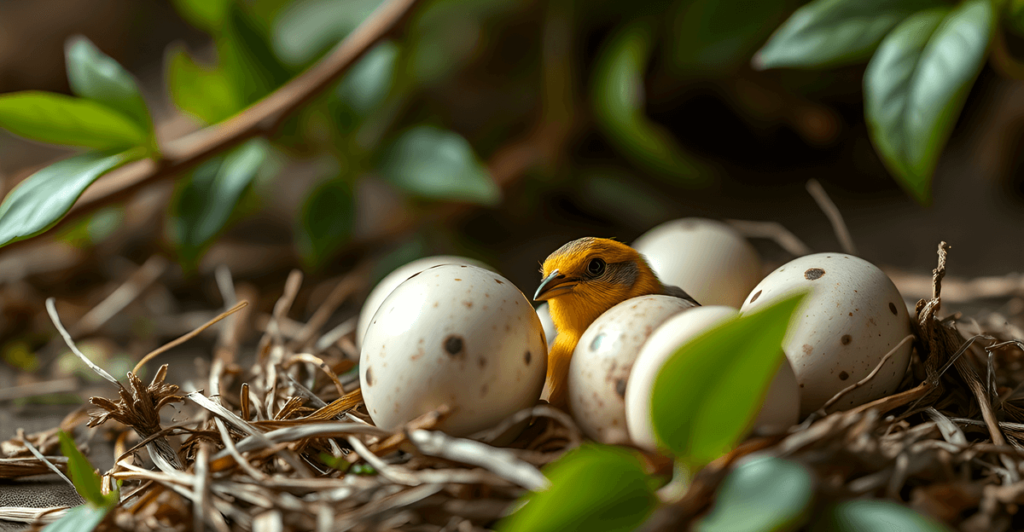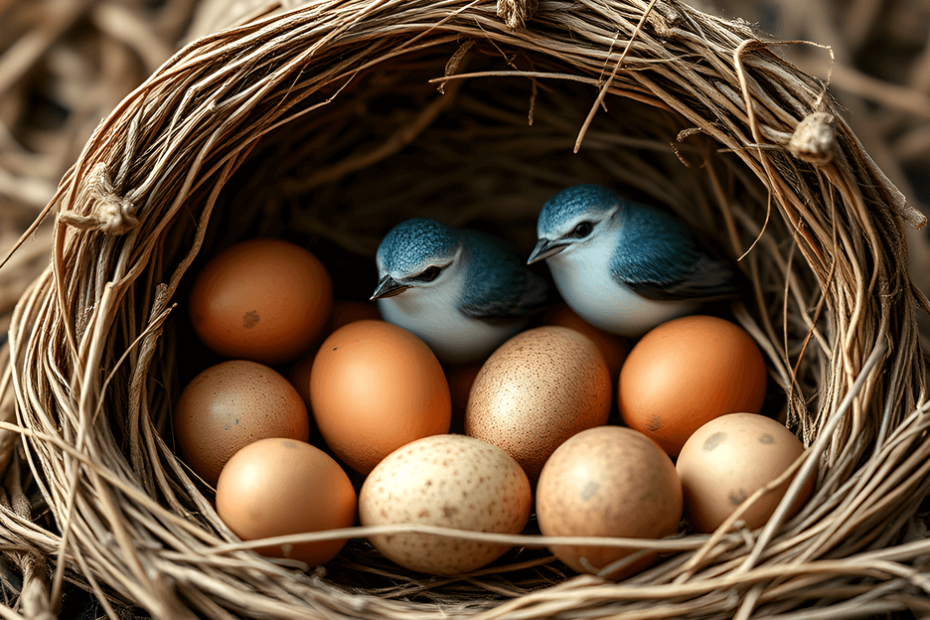Introduction
As an avid birdwatcher and amateur ornithologist, I’ve spent countless hours observing nesting birds in my backyard and local parks. One of the most fascinating aspects of avian biology I’ve witnessed firsthand is the egg incubation process. The question “How long for a bird’s egg to hatch?” is one that has intrigued me for years, leading me on a journey of discovery and wonder. In this comprehensive guide, I’ll share my personal experiences and insights, along with scientific facts, to help you understand the intricacies of bird egg incubation and hatching.
The Basics of Bird Egg Incubation
Before we dive into the specifics of hatching times, it’s crucial to understand what incubation is and why it’s so important. Incubation is the process by which birds keep their eggs warm to ensure proper embryonic development. As I’ve observed in my backyard bird sanctuary, this process is both delicate and vital.
What is incubation?
Incubation is essentially the bird equivalent of pregnancy. It’s the period between when an egg is laid and when it hatches. During this time, the egg needs to be kept at a constant temperature to allow the embryo inside to develop properly. I’ve seen firsthand how dedicated parent birds are to this task, rarely leaving their nests for more than a few minutes at a time.
Why do birds incubate their eggs?
The primary purpose of incubation is to provide the developing embryo with the optimal temperature for growth. In my experience watching various bird species, I’ve noticed that incubation serves several additional purposes:
- Protection: Sitting on the eggs helps shield them from predators.
- Humidity control: The parent’s body helps maintain the right moisture level for the eggs.
- Turning: Many birds regularly turn their eggs to ensure even development.
How do birds incubate their eggs?
Birds have developed a variety of strategies for incubation. In most species I’ve observed, the female does the majority of the incubating, but there are exceptions. For instance, I once watched a pair of Northern Cardinals take turns sitting on their nest, demonstrating shared parental responsibilities.
Most birds have developed a special area on their bellies called a “brood patch.” This area has fewer feathers and more blood vessels, allowing for efficient heat transfer to the eggs. It’s truly remarkable to see how nature has equipped these creatures for the task of incubation.

Factors Affecting Hatching Time
Through my years of bird watching and studying, I’ve learned that the question “How long for a bird’s egg to hatch?” doesn’t have a one-size-fits-all answer. Several factors influence the incubation period:
Species-specific incubation periods
Each bird species has evolved to have its own typical incubation period. In general, I’ve noticed that smaller birds tend to have shorter incubation periods than larger birds. For example, the tiny hummingbirds in my garden typically incubate their eggs for about 16-18 days, while the Bald Eagles I’ve observed at a nearby lake can take up to 35 days.
How Long for a Birds Egg to Hatch? Environmental factors
The environment plays a crucial role in egg development and hatching time. Here are some key factors I’ve observed:
- Temperature: Warmer temperatures can speed up development, while cooler temperatures can slow it down. I’ve seen this firsthand when unusually warm spring weather led to earlier-than-expected hatchings in my backyard.
- Humidity: Proper humidity levels are essential for successful incubation. Too dry, and the embryo may not develop correctly; too humid, and mold could grow on the eggs. I once rescued a clutch of abandoned eggs by carefully recreating the right humidity conditions in an incubator.
- Altitude: At higher altitudes, the air is thinner, which can affect oxygen levels and potentially extend incubation times. While I haven’t personally observed this, it’s an interesting factor to consider for those living in mountainous regions.
Parental behavior
The diligence of the parent birds can significantly impact hatching time. I’ve seen dedicated parents who rarely leave the nest, resulting in consistent incubation temperatures and faster development. Conversely, I’ve also witnessed cases where frequent disturbances or less attentive parents led to delayed hatching.
Egg size and composition
In general, larger eggs take longer to hatch than smaller ones. The composition of the egg, including the thickness of the shell and the amount of yolk, can also affect incubation time. This is something I’ve noticed particularly when comparing different species nesting in my yard.
Average Incubation Periods for Common Bird Species
Over the years, I’ve had the privilege of observing many different bird species during their nesting periods. Here’s a table summarizing the average incubation periods for some common birds I’ve encountered:
| Bird Species | Average Incubation Period (days) |
|---|---|
| American Robin | 12-14 |
| Blue Jay | 16-18 |
| Northern Cardinal | 11-13 |
| House Sparrow | 10-14 |
| Mourning Dove | 14-15 |
| American Crow | 16-18 |
| Bald Eagle | 34-36 |
| Great Horned Owl | 30-37 |
| Ruby-throated Hummingbird | 16-18 |
| Canada Goose | 25-30 |
Small songbirds
Small songbirds typically have shorter incubation periods. Let’s look at a few examples I’ve observed in my backyard:
How long for a sparrow’s eggs to hatch?
House Sparrows, which are frequent visitors to my bird feeders, typically incubate their eggs for 10-14 days. I’ve watched many sparrow families over the years, and it’s always exciting to see the tiny, naked chicks emerge after this relatively short period.
Incubation time for finch eggs
Finches, such as the American Goldfinch, usually have an incubation period of about 12-14 days. I remember one summer when a pair of goldfinches built a nest in a shrub near my window. It was fascinating to watch the female diligently sit on her eggs for nearly two weeks before the chicks hatched.
Hatching period for robin eggs
American Robins, a common sight on many lawns, typically incubate their eggs for 12-14 days. I’ve had the joy of watching several robin nests in my yard over the years. One particularly memorable experience was when a pair built their nest on a low branch of my apple tree. I was able to observe the entire process, from egg-laying to hatching, which occurred almost exactly 13 days after the last egg was laid.
Medium-sized birds
Medium-sized birds often have slightly longer incubation periods than their smaller counterparts. Here are some examples from my observations:
How long do pigeon eggs take to hatch?
Rock Pigeons, which are common in urban areas, typically incubate their eggs for about 17-19 days. While I don’t have pigeons nesting in my yard, I’ve observed them in nearby city parks. Their dedication to their eggs, even in busy urban environments, is impressive.

Incubation duration for dove eggs
Mourning Doves, which are frequent visitors to my bird bath, usually incubate their eggs for 14-15 days. I once had a pair nest in a hanging planter on my porch. It was a wonderful experience to watch them take turns incubating the eggs and to finally see the squabs hatch after two weeks.
Hatching time for crow eggs
American Crows typically incubate their eggs for 16-18 days. While crows don’t nest in my immediate vicinity, I’ve observed them in a nearby wooded area. Their intelligence and social behavior make them fascinating to watch, especially during the nesting season.
Large birds
Larger birds generally have longer incubation periods. While I haven’t had the opportunity to observe these species nesting in my backyard, I’ve been fortunate enough to witness some of them during birdwatching trips:
How long for eagle eggs to hatch?
Bald Eagles have one of the longer incubation periods among North American birds, typically lasting 34-36 days. I once visited a wildlife refuge where I could observe a nesting pair of Bald Eagles through a spotting scope. The dedication of these majestic birds to their eggs was truly awe-inspiring.
Incubation period for owl eggs
Great Horned Owls have an incubation period of about 30-37 days. During a nighttime owl prowl led by a local naturalist, I was lucky enough to spot a nesting Great Horned Owl. The guide explained that these owls often begin nesting in late winter, incubating their eggs through harsh conditions.
Hatching time for ostrich eggs
While not a bird I’ve observed personally, it’s worth mentioning that the ostrich has one of the longest incubation periods of any bird, lasting 42-46 days. This extended period is due to the enormous size of ostrich eggs, which are the largest of any living bird.
Extreme Cases: Shortest and Longest Incubation Periods
In my studies and observations, I’ve come across some fascinating extremes in bird egg incubation periods. These cases always remind me of the incredible diversity in the avian world.
Birds with the shortest egg hatching times
The bird with the shortest known incubation period is the Heilmann’s Crake, a small rail species found in South America. Their eggs hatch in just 14-15 days. While I haven’t observed this species personally, learning about them has given me a new appreciation for the rapid development some bird species are capable of.
Birds with the longest egg hatching times
On the other end of the spectrum, the bird with the longest incubation period is the Kiwi, native to New Zealand. Kiwi eggs can take 75-80 days to hatch! During a trip to a zoo with a kiwi breeding program, I learned about their unique incubation process. The male kiwi does all the incubating, and the egg is so large relative to the bird’s body that the female can’t eat for the last few days before laying.
Reasons for these extremes
The vast difference in incubation periods between species like the Heilmann’s Crake and the Kiwi can be attributed to several factors:
- Egg size: Larger eggs generally take longer to develop.
- Chick development: Some species hatch with more developed chicks that can leave the nest quickly, which requires a longer incubation period.
- Environmental adaptations: Birds have evolved incubation periods that suit their particular ecological niches.
The Hatching Process
One of the most exciting parts of bird watching is witnessing the hatching process. Over the years, I’ve been fortunate enough to observe this miraculous event several times, and it never fails to amaze me.
Signs that eggs are close to hatching
As the hatching time approaches, there are several signs I’ve learned to look for:
- Egg movement: You might see the eggs wobble slightly as the chick inside moves.
- Pipping: This is when the chick starts to break through the shell, usually creating a small hole first.
- Chirping: Sometimes, you can hear tiny chirps coming from inside the egg.
- Parents’ behavior: The parent birds often become more attentive and excited as hatching nears.
Stages of egg hatching
The hatching process typically occurs in several stages:
- Internal pipping: The chick breaks through the inner membrane of the egg.
- External pipping: A tiny hole is made in the shell by the chick.
- Zipping: The chick continues to break the shell in a circular pattern.
- Emergence: The chick pushes its way out of the egg.
How long does the actual hatching process take?
In my experience, the time it takes for a chick to fully emerge once it starts pipping can vary widely. For small songbirds, it might take just a few hours. For larger birds, it can take up to 24 hours or even longer.
I remember watching a robin’s nest where the first signs of pipping appeared in the morning, and by late afternoon, all three chicks had hatched. It was an incredible day of bird watching!
Frequently Asked Questions About Bird Egg Hatching
Over the years, I’ve been asked many questions about bird egg hatching. Here are some of the most common ones, along with answers based on my personal experiences and research:
What is the average hatching time for chicken eggs?
While I don’t keep chickens myself, I have friends who do. It usually takes 21 days for chicken eggs to hatch. This is one of the reasons chickens are often used in classroom hatching projects – their incubation period is relatively short and predictable.
Can the hatching time be influenced by human intervention?
In most cases, it’s best not to intervene in the natural hatching process. However, in controlled settings like poultry farming or conservation programs, incubation can be influenced by adjusting factors like temperature and humidity. I once visited a wildlife rehabilitation center where they carefully controlled these factors to help endangered bird species successfully hatch.
What happens if a bird egg doesn’t hatch on time?
If an egg doesn’t hatch within a few days of its expected time, it’s likely that the embryo has not developed properly or has died. In my observations, parent birds usually continue incubating for several days past the expected hatch date before abandoning the egg.
Do all eggs in a clutch hatch at the same time?
Not necessarily. In many species I’ve observed, hatching is asynchronous, meaning the eggs hatch over a period of time rather than all at once. This is often because the female starts incubating before all eggs are laid, leading to staggered development.
How long can bird eggs survive without incubation?
Depending on the species and the surroundings, this may change. In general, most bird eggs can survive for up to a week without incubation, but the viability decreases each day. I once found an abandoned robin’s nest and, after consulting with a wildlife expert, learned that the eggs were no longer viable after being left for several days in cool weather.
Caring for Bird Eggs: Tips for Bird Watchers and Conservationists
As a passionate bird watcher, I’ve learned that observing nesting birds comes with a responsibility to protect them. These are some pointers that I’ve learned over the years:
Best practices for monitoring nests
- Maintain your distance: To see from a distance, use a spotting scope or binoculars.
- Limit visits: Don’t check on the nest too frequently to avoid stressing the birds.
- Be quiet and still: Minimize disturbance when near a nest.
- Don’t touch: Handling eggs or nestlings can cause the parents to abandon the nest.
When to intervene (and when not to)
In general, it’s best not to intervene in natural nesting processes. However, there are rare instances where intervention might be necessary:
- Fallen nests: If a nest with eggs or chicks has fallen due to severe weather, you might be able to carefully replace it.
- Injured parents: If you notice that parent birds are injured or killed, contact a wildlife rehabilitator for advice.
- Immediate danger: If a nest is in immediate danger (e.g., from predators or human activity), you might need to take action to protect it.
Always consult with a licensed wildlife rehabilitator or local bird conservation organization before taking any action.

Reporting unusual hatching events to ornithologists
If you observe something unusual during the hatching process, such as extremely early or late hatching, or abnormalities in the chicks, consider reporting it to local ornithologists or bird conservation groups. Your observations could contribute to important research.
The Science Behind Egg Incubation
Understanding the science behind egg incubation has deepened my appreciation for this amazing process. Here’s what I’ve learned:
Embryonic development stages
Bird embryos go through several stages of development during incubation:
- Formation of the primitive streak: This marks the beginning of the embryo’s body formation.
- Development of major organs: The heart, brain, and other organs begin to form.
- Growth of limb buds: The beginnings of wings and legs appear.
- Feather development: Feather buds start to form.
- Final growth and preparation for hatching: The embryo takes up most of the egg’s space and prepares to pip.
How temperature affects incubation time
Temperature plays a crucial role in egg development. Most bird eggs need to be kept at around 37°C (98.6°F) for optimal development. I’ve noticed that on particularly hot days, parent birds may spend more time off the nest to prevent overheating, while on cold days, they rarely leave the eggs.
Interestingly, slight variations in temperature can affect not just the speed of development, but also traits like sex determination in some species. This is why consistent incubation is so important.
Recent research on factors influencing hatching times
Recent studies have shown that factors like climate change can impact hatching times. For example, some birds are laying eggs earlier in the year in response to warming temperatures. This can lead to a mismatch between hatching times and peak food availability, potentially affecting chick survival rates.
